A Lifetime for Justice

Share this
From the revision of Magna Carta in 1216 to the trial of the Colston Four eight centuries later, Bristol has been the home of major changes in the law and democracy. Sometimes this change has come from public protest; sometimes it’s been the dedicated work of individuals and small groups over many years; sometimes MPs have led the way.
Though there have been setbacks and failures, the progress made towards social justice has been strong, if long, and shows what can be achieved when good ideas, campaigns and people come together.
This material provides details of some of these changes, challenging us all to follow these pioneers in making future positive change happen.
Booklet and Timeline
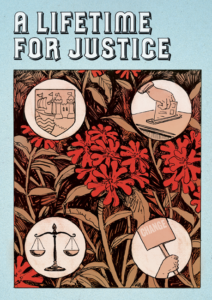
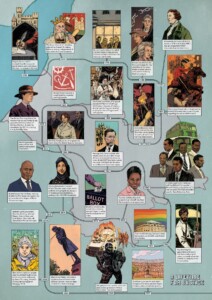
Bristol is a city with a radical past and a long heritage of demonstration, protest and fights for justice. This pamphlet seeks to rediscover and explore this heritage, encouraging all those who read it to discover your community heritage as changemakers of the city; inspire you to play active roles in justice activism; and to consider the legal and justice sectors for your future work. Hearing and understanding these stories, people and moments help us see the past in new ways and be inspired by their actions to make our own mark on the city.
Illustrated and designed by Willem Hampson, it has been produced by SARI (Stand Against Racism & Inequality) and Bristol Ideas during Alex Raikes’ year as High Sheriff of Bristol, and is made possible with the National Lottery Heritage Fund.
Learning Resources
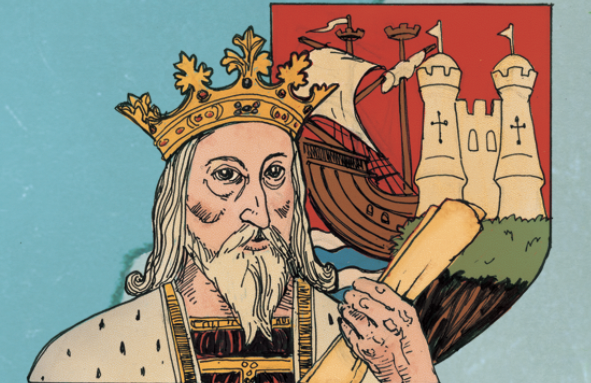
The Great Charter of Liberties
In 1373, Bristol became an independent county. Before this, Bristol was divided geographically and administratively by the River Avon. The parishes to the west and north of the river lay in Gloucestershire, while those to the south were in Somerset. The charter of 1373 gave Bristol and its suburbs jurisdiction independent from those county authorities, making it a county in its own right. Courts sat in Bristol, so people didn’t need to go to the towns of Gloucester or Ilchester (Somerset) for Quarter Sessions (local courts held at four set times each year). The Great Charter of Liberties was granted by Edward III.
This lesson is an opportunity for Bristol area schools explore a significant moment of law and governance in action. It is also an opportunity to mark a significant city anniversary in 2023.
- KS3 History (AQA BB Britain Power and People; Edexcel Crime and Punishment in Britain c.1000 to present).
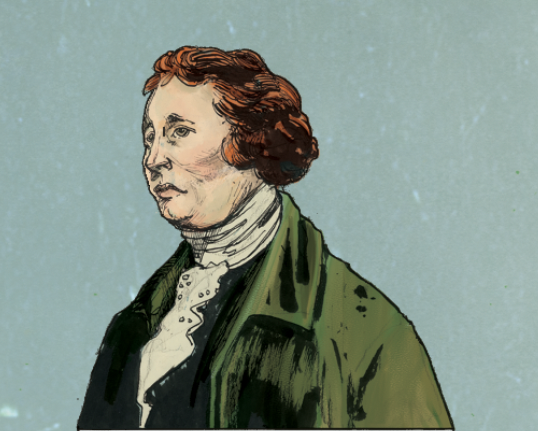
Speech to the Electors of Bristol, 3 November 1774
Edmund Burke, the Irish philosopher and politician, represented the city of Bristol in Parliament between 1774 and 1780. Having been a Whig MP for almost ten years, representing the Constituency of Wendover in Buckinghamshire, Edmund Burke campaigned to become MP for Bristol. He was elected alongside another MP from his own party, Henry Cruger. On 3 November 1774, Edmund Burke gave a speech to the people of Bristol who had elected him. The speech, known as ‘The Speech to the Electors of Bristol’, defines Burke’s view that an MP’s role and opinion is independent from those who had elected them.
This lesson is an opportunity for students to understand and debate Burkean views on the role of an MP – and for Bristol area schools explore a nationally significant moment that took place locally.
- KS3 History (AQA BB Britain Power and People; Edexcel Crime and Punishment in Britain c1000 to present).
- KS4 Politics (AQA 3.1 Government and Politics of the UK; 3.3 Political Ideas; Pearson 1. UK Politics and Core Political Ideas).
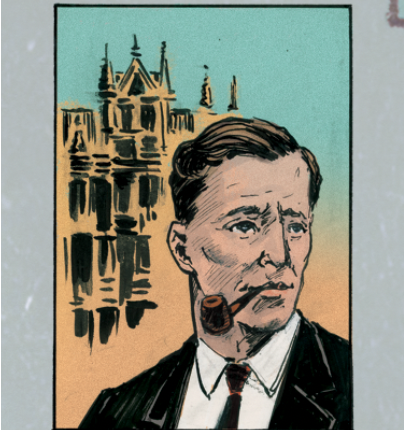
Peerage Act, 1963
The Peerage Act received Royal Assent and came into force on 31 July 1963, enabling people who inherited peers to renounce their titles for life if they wished. This meant that people who inherited a title and entered the House of Lords could reject their titles and be elected again into the House of Commons. Tony Benn had been MP for Bristol South East since 1950. From 1955 he spent eight years working to getting the Peerage Act passed. He knew that one day he would inherit the title of Viscount Stansgate from his father and would at that point be disqualified from standing in the House of Commons – this happened in 1960. He renounced his peerage 22 minutes after the Act came into force in 1963.
This lesson is an opportunity for students to understand and debate views on the British Peerage system – and for Bristol area schools explore a nationally significant moment that took place locally.
- KS3 History (AQA BB Britain Power and People)
- KS4 Politics (AQA 3.1 Government and Politics of the UK; 3.3 Political Ideas; Pearson 1. UK Politics and Core Political Ideas)
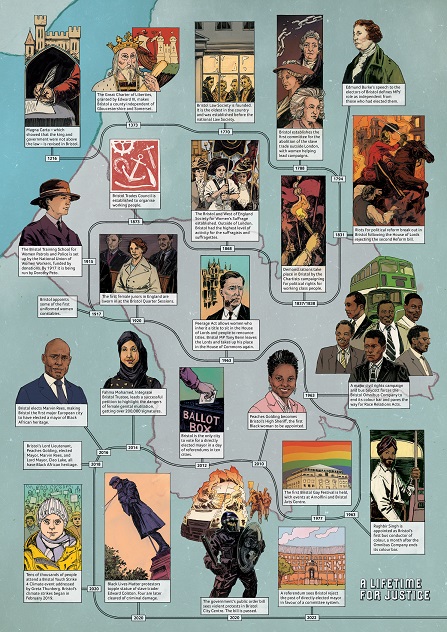
Find out more: An index of resources
This pack gives links to other resources from organisations across Bristol, with material suitable for KS2 / KS3 / KS4 / KS5.

